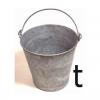Jugoslavija, Hrvatska and the modern European game
Working on the assumption that Aberdeen nibble by Chikhura Sachkhere tomorrow night, this piece will be submitted to The Reds programme on Friday for use in the Europa League Third Round second leg versus Croatian visitors, HNK Rijeka, otherwise brown paper bags all round! Having been at three European games in Luxembourg, it would be great to enjoy more than one here! I am still gutted at being denied my first Partizan Beograd viewing.
With HNK Rijeka having twice been an opponent in recent seasons, it is maybe from variety’s perspective a good thing that Fola Esch lost out to Chikhura, or it would have been two repeat rounds in a row for Reds away days! Tonight’s visitors and the previous Georgian guests both come from newish Independent lands, following the relatively straight forward break up of the Soviet Union at the time (except for Georgia, and now Ukraine), and the horrific war torn splintering of Yugoslavia. These two previous “super” states now account for 18 UEFA members, with the most recently added being Kosovo, perhaps the most controversial of them all as large swathes of the world don’t even recognise it as a country! When you consider that in the same period, little dots of land like Andorra, San Marino, Gibraltar and The Faroe Islands were added to the roster as well, you can see how the early rounds of the European competitions have become congested.
The Intertoto Cup, that once angst ridden early season event that Scotland only ever advanced one solitary round, once, which was thanks to Hibs seeing off a truly dreadful Latvian club Dinaburg Daugavapils. That said I found myself smiling at the notion that the Latvians would love the new rule of being able to take the ball from a goal kick inside the box as it would have helped them immeasurably back then! I have never seen a goalkeeper so reticent to kick the ball long which resulted in the Hibs players just lined up on the edge of the box and awaited their prey! Only al trio of our clubs ever entered the doomed competition that had no winner or trophy! Partick Thistle were the pioneers back on the 1st July 1995 when they beat Icelandic side IBK Keflavik 3-1. This was the first game in a group of five clubs where you played two home and two away ties. NK Zagreb from Croatia were the second team to play in Glasgow and they won 2,1 at Firhill, a result that prevented the Jags from progressing. Now I know 24 years ago the world was less connected, but reading in that Partick programme that day that they knew absolutely nothing about their opponents was quite jarring! I have endeavoured to help out a few clubs since! Dundee were one, the third of our Intertoto participants but they merely lasted one joust losing out to Sartid Semederevo from Serbia. Oddly, that annual little “bible” of Scottish football, The Wee Red Book chooses not to include these European games in its listings for each club! I may have a unique claim to having been at all seven Intertoto games ever played in Scotland! I guess because of the early start to the season, our clubs didn’t always want to compete, and eventually the Intertoto was merged into the UEFA Cup thus making participation mandatory.
In finishing fourth last term, Aberdeen have qualified from what was once Intertoto spot! It is only through this coming together of competitions that Wolves, Torino, Eintracht Frankfurt, Strasbourg and Espanol are involved in the second round from the big five nations in this seasons Europa League. UEFA seeding and co-efficient tables mean that even clubs who have never even participated in Europe can go straight into the Champion’s League and Europa League group stages if the country in which they compete domestically is high up the rankings, and they avoided the “Intertoto” slot. Wigan Athletic are one club that springs to mind, and perhaps a less obvious one was Augsburg from Germany. This North Bavarian city is twinned with Inverness, and remarkably both clubs debuted in European football in the same season, alas Caley Thistle were out long before the group stage ever came around!
In many regards, I think from a fans perspective, aside from the desperately short notice to book trips, the quirky early round ties are enjoyed. Yes we all want to continue to the group stages, but by then you are coming up against the vacuum packed monied end of the European game. It is always good to challenge against the best, but it is also great to go to other lands, and see new places and cultures, as long as no visa is required! Those who ventured to the furthest end of the UEFA family in Almaty, I am sure they would have enjoyed the old Kazakh capital. Tbilisi is also an amazing city, and it might have whetted the appetite for further holiday plundering in Georgia. You haven’t done Georgian properly unless you had Khachapuri (a kind of pizza) washed down with a bottle of Borjomi, a distinctly curious drop of salty fizzy water! Rijeka isn’t the standout place to visit on the Croatian coastline, but its proximity to Slovenia and Trieste in Italy makes it an appealing area to discover.
Rumours abound that UEFA are planning to re-introduce a third club competition again! Might we see the Cup Winners Cup back on the roster, albeit under a new name? If it was brought back, and the domestic cup winner was already qualified for the Champions League, or the Europa League, perhaps the cup runner up could get in again, or a play off featuring the losing semi-finalists maybe to decide who would represent the country. Yes that might on occasion mean Inverness are playing Dundee in a play off to take part, or Watford or Brighton representing England in a tournament full of lesser names, but does that matter? Do we always have to pander to money these days? It would give lesser lights a chance to shine. Michel Platini famously once said he wanted the second competition of Europe to be like an FA Cup, no seeding and if you weren’t good enough for the Champions League you didn’t deserve favouritism. That bold vision of course never came to pass, with pressure from the top football associations and their need to have as many safety nets and ways to keep generating money as possible on the table. The English top clubs have only really become interested in winning the Europa League since the instigation of a guaranteed Champions League slot for the winner. Prior to that on many an occasion it would be diminished by fielding weakened sides and grumbles about playing on a Thursday, but funnily enough that all seems to have gone now! If the third trophy is coming out of the closet, be inventive UEFA, chuck one name from each national association in a pot and let’s have a proper competition, no falling into any other cup, maybe even just one legged games with the lesser nation’s representative getting home advantage if it’s to be a short and snappy affair! Yes maybe Spain’s representative would meet Italy’s and Andorra’s might draw Germany’s in the first round, but great! I am fed up despairing that we will never see the likes of Carl Zeiss Jena v Dinamo Tbilisi or even in the more modern era a Porto v Monaco as a final again. A glimmer of hope came from Ajax’s ultimately cruel loss in the Champions League semi-final last season, which was the first time in many a year where you could say a talented youth system had triumphed over multi-millionaires when the Amsterdam outfit beat Real Madrid and Juventus, and just came up short versus Tottenham. Money is ruining our beautiful game, lets get some of the quirky fun back in it with a less top tier weighted competition!
Rijeka have of course sampled the Europa League group stages on a number of occasions, and Croatian football has been riding on a high since Russia 2018, but nowhere is immune to that early July shock these days and Gzira United from Malta winning at Hajduk Split was perhaps one of the stand out shocks from Round One this season! The breaking apart of Yugoslavia might have benefited the northern two lands of Slovenia and Croatia hugely economically, both now EU members, but the domestic football product in the now seven constituent lands that once made up the country has been diminished by the lack of serious, and consistently challenging fixtures. Gone are the Partizan Belgrade v Hajduk Split, or the Red Star Belgrade v Dinamo Zagreb fixtures, and even Zeljeznicar Sarajevo v Vardar Skopje was a tasty tie back in the days of Tito! While the first four names continue to dominate in the smaller pool of their own leagues, the Bosnian and Macedonian as well as the Montenegrin leagues have all really struggled. F91 Dudelange from Luxembourg beat Shkendija, a familiar name to Aberdeen, in the last round meaning North Macedonia (to give the country its new full title!) have lost all its clubs by round two, and even then only because of the farcical notion that all Champions League exitees get a second bite at European competition by dropping into the Europa League, and Shkendija will have lost twice! FK Sarajevo the last representative from Bosnia have only advanced to Round three courtesy of an odd quirk where a need to even out the number of participants resulted in the loser of the tie versus Celtic skipping a round!
UEFA of course are vehemently against any cross border leagues, and well organised sides like Rijeka have enjoyed the fruits of European competition regularly since the inception of the Croatian league. They might not necessarily agree with this, but retaining talent and drawing bigger crowds for domestic games would benefit hugely from somehow bringing all the Balkan lands together in one top flight again! A few years ago, terrible flooding that affected Bosnia, Serbia and Croatia showed that these lands can put their differences aside and come together. Perhaps the most astonishing game I have ever attended was Serbia v Croatia in Scotland’s World Cup group leading up to the 2014 finals. No away fans were allowed but it was still an intimidating and crackling atmosphere. Maybe away fans would require to be banned should such a pipe dream of a league ever come to fruition, but I know many in that region would welcome the boost of enthusiasm and interest, which would bring more fans back to the stadium’s, and get a bigger television audience, which is what it is all about these days, sadly. This region will always produce skilful footballers, and the International teams may well continue to do well as the prodigious talent continues to come through, but largely they will only progress to their maximum potential having been sold to clubs in other lands, and not necessarily the absolute top clubs as even going from the Croatian to the Swiss league will still see quite a bump in wages! In a land that has brought us Robert Prosinecki, Zvonimir Boban, Davor Suker and Luka Modric, the talent is undoubted and it needs to be nurtured at the highest level to get the best out of the next generation of stars, it’s just a pity that journey can only happen outside Croatia.
Rijeka struggled to establish itself in the Yugoslav top flight, but when they did finally get a more regular foothold, European football came along too, reaching the Quarter Finals of the Cup Winners Cup in 1979/80 losing narrowly 2-0 on aggregate to Juventus. A few years later they beat Real Madrid 3-1 at home only to go down 3-0 in the return, a game fraught with controversy. The most recent famous scalp from 19 European campaigns came a couple of years ago beating AC Milan 2-0 in the group stages, but Feyenoord, Standard Liege, and Stuttgart have all been beaten in recent seasons too.
The duels between Croatian and Scottish clubs total just eleven encounters, even including the Yugoslavian days. Only five Croatian clubs have ever been involved and six from here. Rijeka become only the third Croat team to play here more than once, and oddly no Scottish team have played more than one side from the Balkan land! In Yugoslavian times only Dinamo Zagreb and Hajduk Split played here, with the Croatian capital giants the pioneers in 1963/64 losing 4-2 on aggregate to Celtic. They were back three years later losing 4-2 at Dunfermline but prevailing on away goals after winning 2-0 in Zagreb. The Yugo baton was then passed onto Hajduk Split, who were the only visitor through the ‘70’s and 80’s until the country broke apart. Hajduk saw off Hibs 5-4 on aggregate, and then pitched up at Tannadice, losing 2-0 on aggregate to United as they warmed up for doing the double over Barcelona and making the UEFA Cup Final in ‘86/87.
The modern country of Croatia’s football history of jousts with Scottish clubs started with that aforementioned Intertoto game between Partick and NK Zagreb in ‘95, a game that brought Croatia’s only ever win in Scotland! By 1998/99 when NK’s bigger city rivals were back here, governmental flag waving pressure had changed the name of Dinamo to Croatia Zagreb who saw off Celtic 3-1 on aggregate. Eleven years passed before the two lands crossed paths again, and in the intervening years, fan power had brought the name Dinamo back. This time they were in the Scottish capital playing Hearts and defending a first leg 4-0 mauling of the maroons. The Edinburgh police were taking no chances as every Dinamo fan was photographed as they went into the away end! That didn’t prevent flares being taken into the stadium, and amid the pyrotechnics the shirtless Dinamo fans sang themselves silly despite going down 2-0 on chilly Auld Reekie night, but oh boy they were the most intimidating away fans I have ever seen in Scotland! Dinamo were back in ‘14/15 for a fifth game in Scotland, and a third at Celtic Park this time a Europa League group game losing 1-0, but gaining three points from a 4-3 win in Zagreb. Thus far, only the cities of Zagreb and Split had been involved but in the more recent years Aberdeen playing Rijeka and Rangers encountering Osijek added new names to the history of contests between the two lands. When Aberdeen won 3-0 in Croatia they became the first Scottish club to win there at the 9th time of asking, followed soon after by Rangers last season!
The nature of the coefficient calculations by UEFA means that a five year rolling period is in constant calculation, but a season behind last term if that makes sense, so any given country gets notice of gaining or losing a team, or nudging further up the table which gets a country away from the early rounds, and ultimately it can lead to teams going directly into the group stage with no qualifying, a sort of utopia for teams like Wigan and Augsburg et all. Scotland nosedived down the table courtesy of disastrous losses to Maltese, Armenian debutantes, Lithuanians and Luxembourgers all in a catalogue of serious disasters, with certain club names that will ever haunt a variety of our clubs in the shape of Progres Niederkorn, Artmedia Petrazalka (sadly no more), Sigma Olomouc and Malmo, who inflicted the mother of all 0,7 home losses on Hibs! While things seem to have started to steady, the potential for our clubs to be caught out by part-time opponents is still amongst us with Kilmarnock feeling the pain this year, as we add Wales to the roster of horror exits. However, Romania, Bulgaria and the Czech Republic’s performances in Europe have been slipping recently, leaving Scotland, Kazakhstan and Serbia in particular gradually clawing their way up a few places, with Turkey, and Greece the next nations to try to reach for in the coming seasons, which might see later entry dates for our teams. It is a slow progression, but Aberdeen making the Group stages would be a fine feather in the cap for the club and for the collective coefficient of Scotland.






0 Comments
Recommended Comments
There are no comments to display.